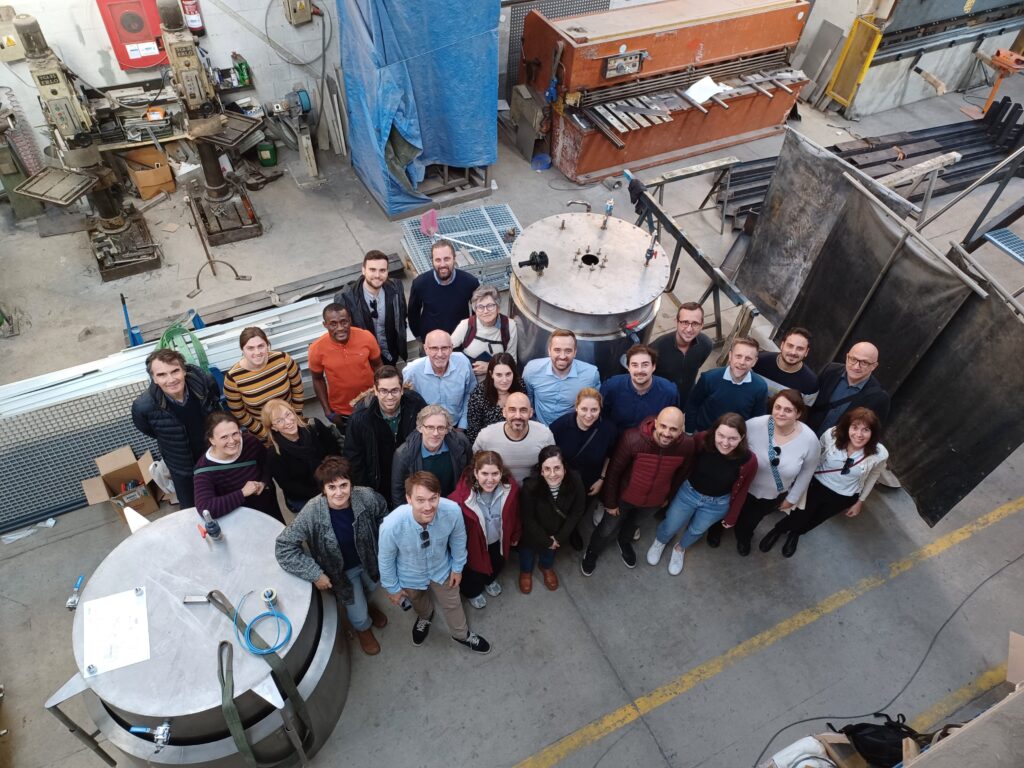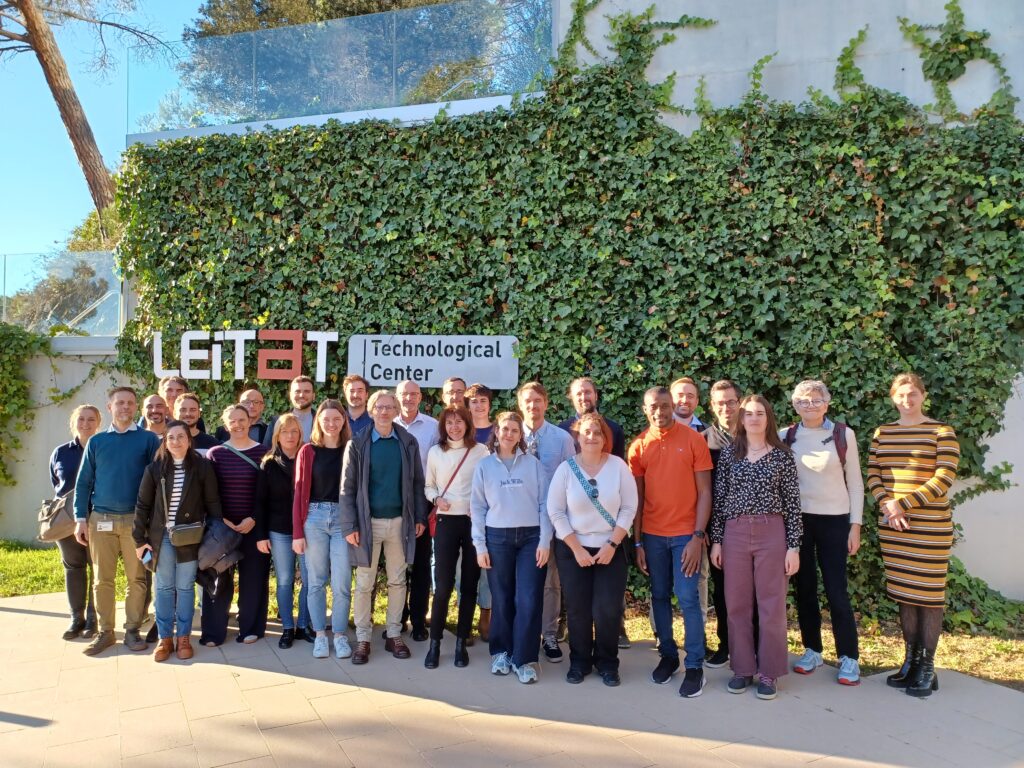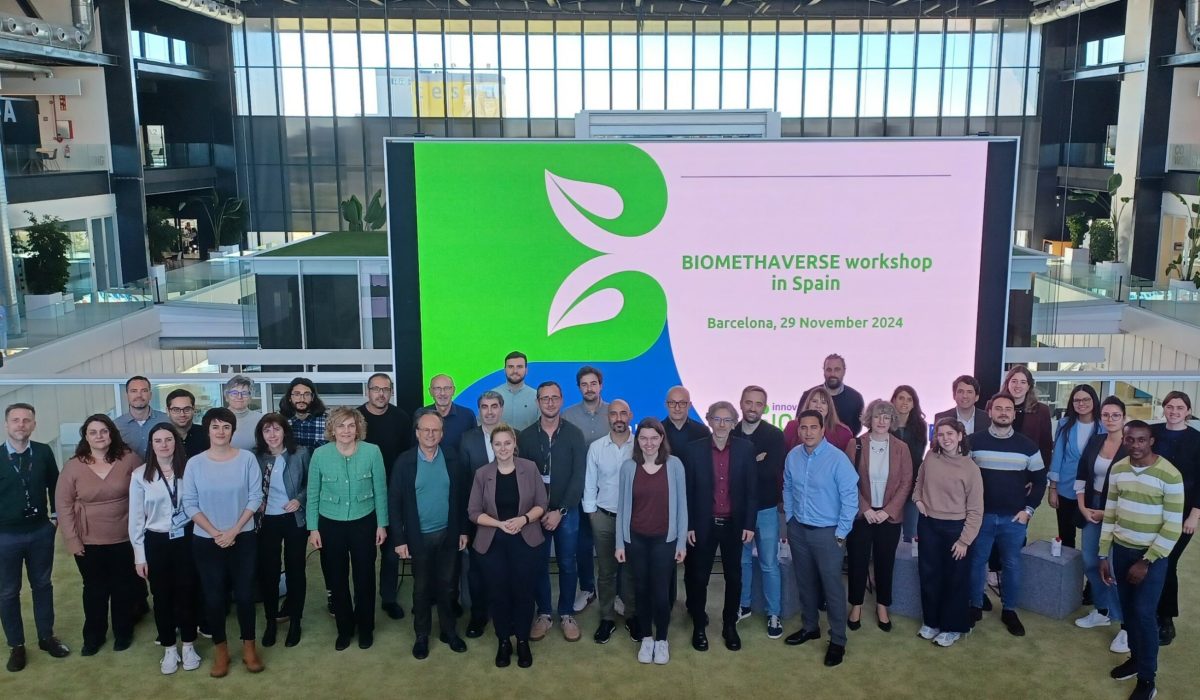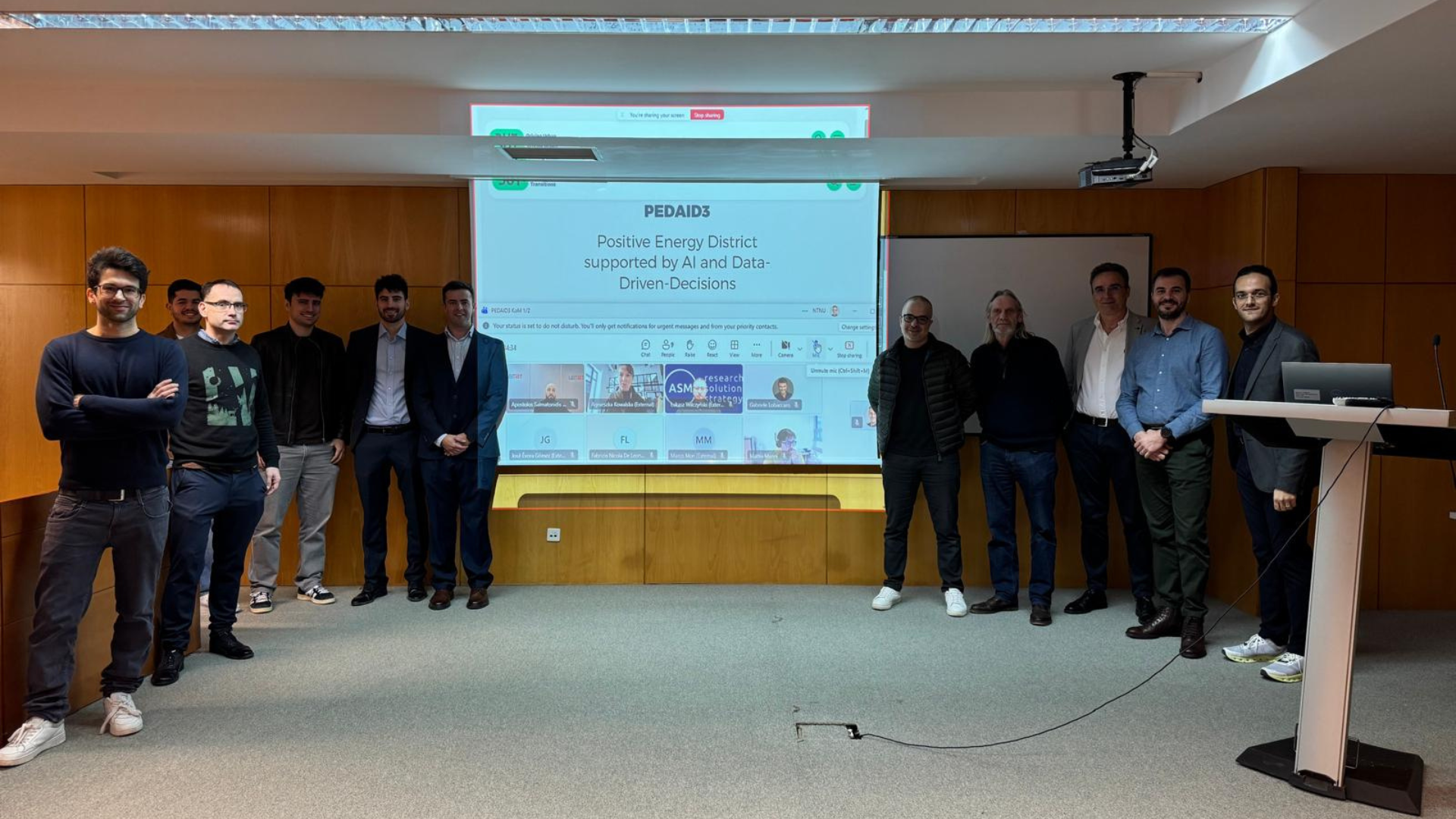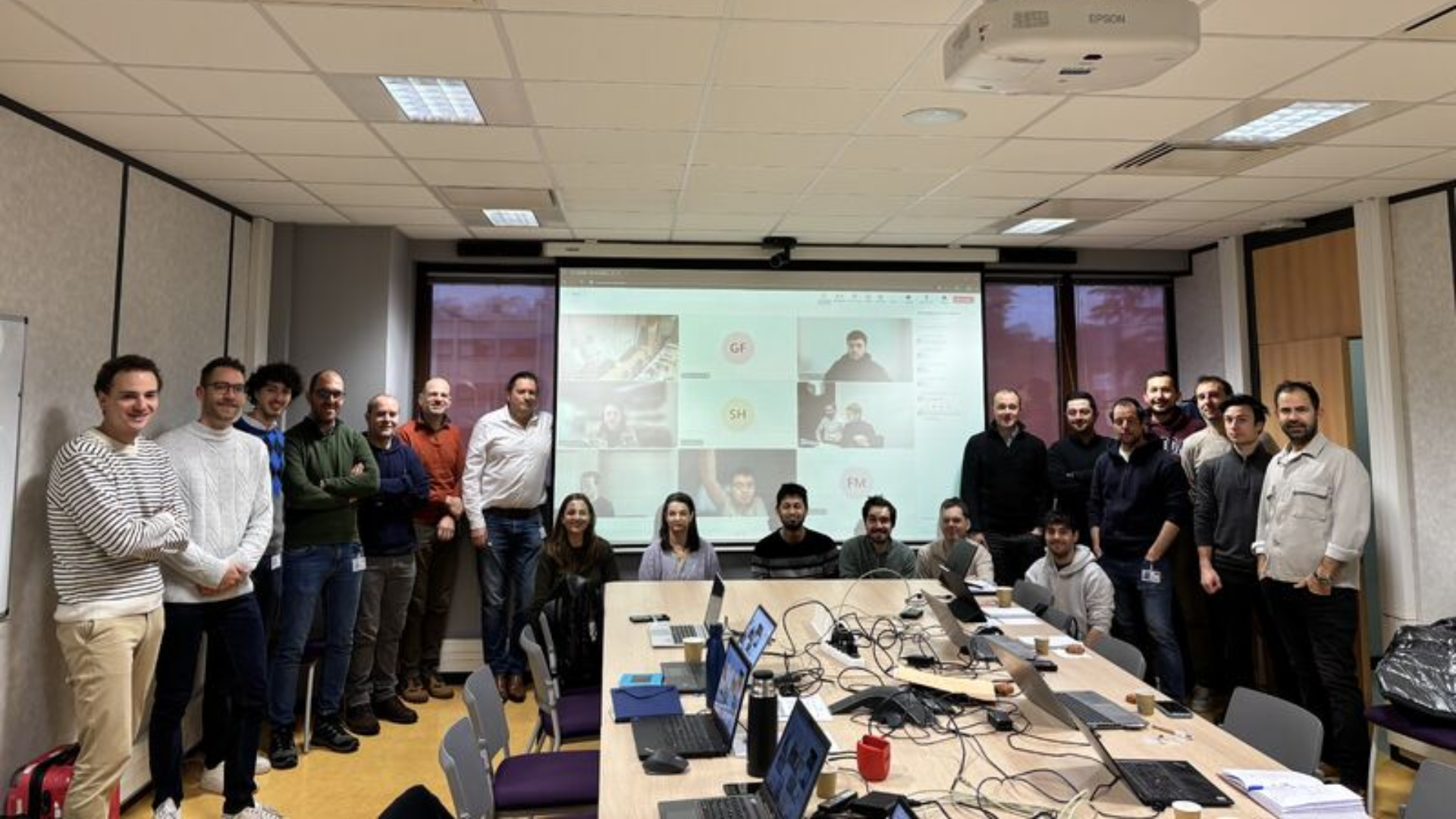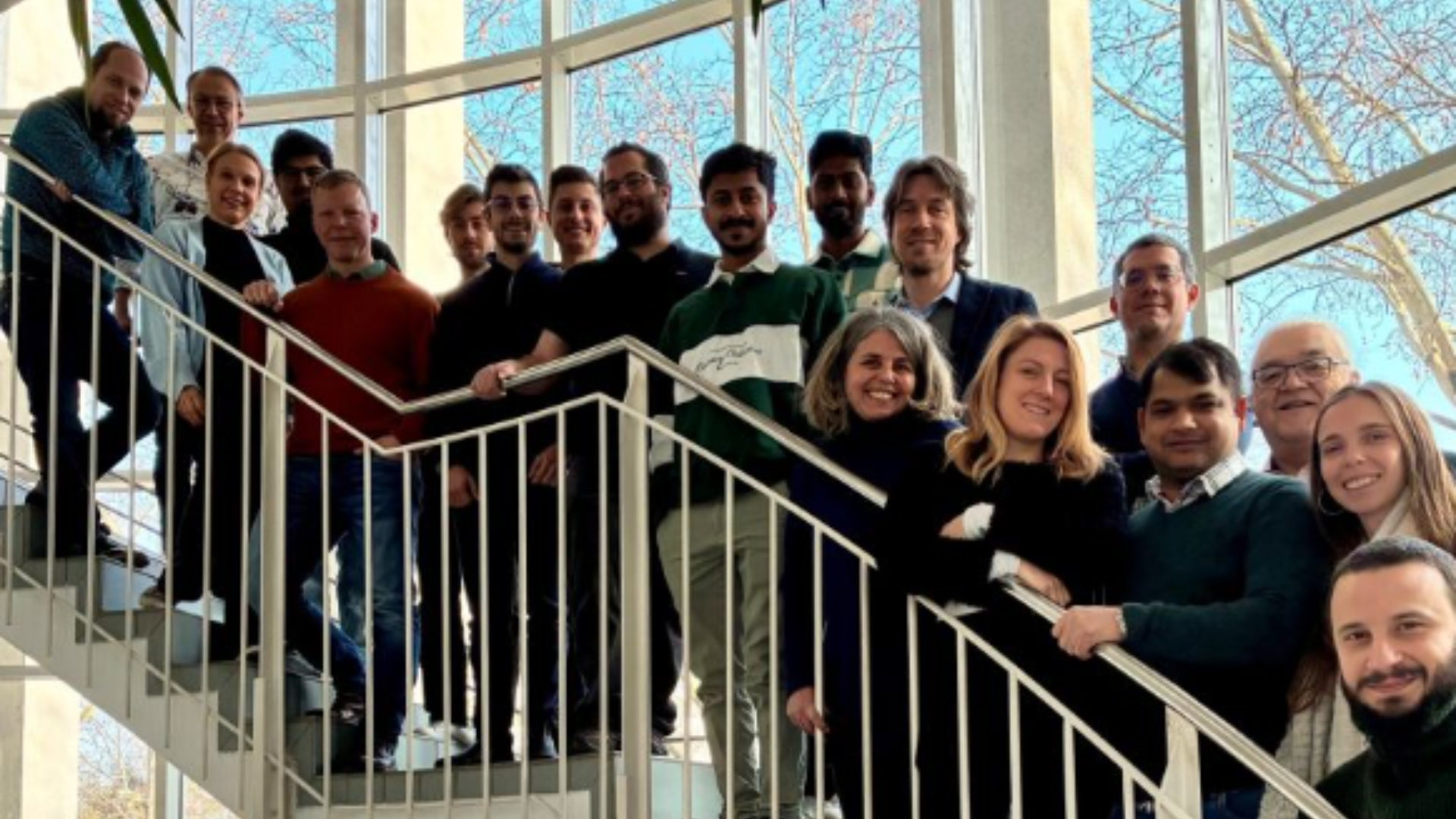The BIOMETHAVERSE consortium, made up of 22 partners, gathered in Barcelona from 27 to 29 November at Leitat’s facilities in DFactory to discuss key project developments. The meeting focused on diversifying and optimising biomethane production technologies to improve profitability and contribute to European energy priorities.
The first day was dedicated to project coordination, with updates on demonstration activities across five countries, as well as progress in sustainability, replicability, and dissemination strategies. Notable achievements included advancements in the construction and operation of pilot sites, bringing innovative biomethane production pathways closer to achieving TRL 6-7. These technologies include electromethanogenesis, thermochemical methanation, and biological methanation.
The second day focused on the demonstration sites in France, Greece, Italy, Ukraine, and Sweden. In France, electromethanogenesis was used to convert agro-industrial waste into biomethane. In Greece, CO₂ from biogas was transformed into biomethane using renewable hydrogen from livestock waste. Italy showcased a wastewater treatment plant with two anaerobic digestion lines converting sludge into biogas. Ukraine presented a mobile plant for the biological methanation of syngas derived from wood and pruning residues. In Sweden, techniques were explored to enhance poultry manure and agricultural waste biogas with hydrogen. A visit to AERIS and Leitat offered a closer look at the practical development of these technologies.
The final day featured a workshop on European biomethane policies, scalability strategies, and market integration. The discussions reaffirmed BIOMETHAVERSE’s commitment to sustainable biomethane production and its contribution to the energy transition. Leitat also had the opportunity to present its activities during the event, reinforcing its expertise in the field.
Eduard Borràs from Leitat moderated a roundtable on the current biomethane market and regulatory framework in Spain. The debate featured experts such as David Fernández from the Spanish Biogas Association (AEBIG), Anna Ayats from the Waste Management Consortium of Vallès Oriental, Daniele Molognoni from Leitat, Pilar Icaran from Nortegas, and Emma Pipó Ollé from Inveniam Group. Key challenges and opportunities in Spain were addressed, with a focus on economic incentives, regulatory development, social acceptance, research lines, and the role of public administration and the private sector.
Beyond the working sessions, consortium members enjoyed networking opportunities, including a visit to AERIS and Leitat, as well as a consortium dinner.
Stay up to date with the project via its official website and communication channels.
🔗 [BIOMETHAVERSE (Official Website)]
🔗 [BIOMETHAVERSE (Leitat’s Blog)]
